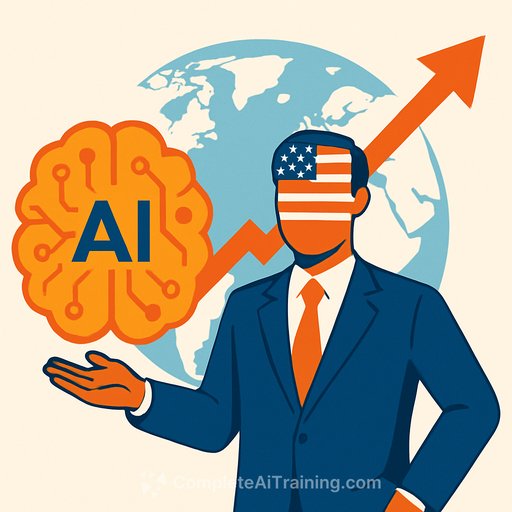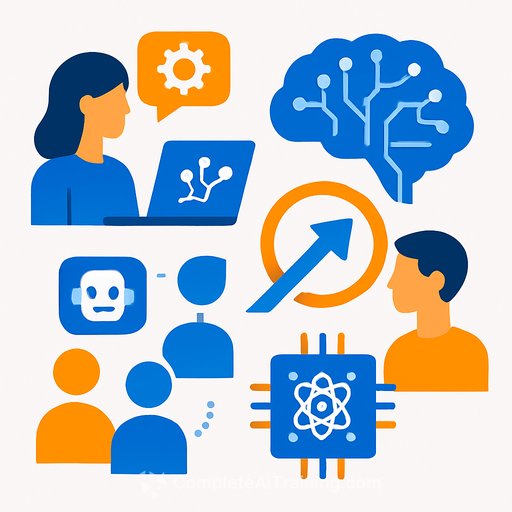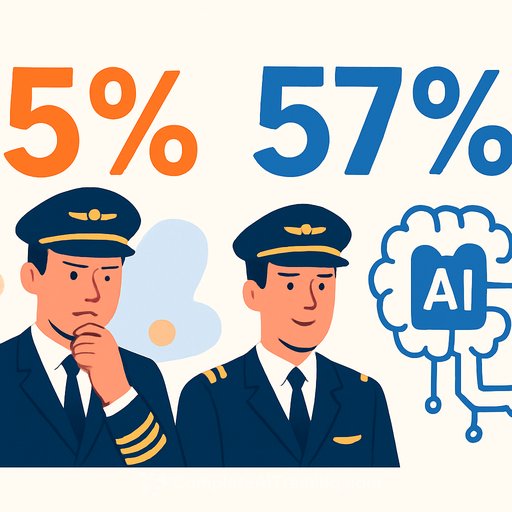White House’s AI Strategy: Winning the Global Race at What Cost?
On July 23, the White House released “America’s AI Action Plan,” a 24-page strategy focused on accelerating artificial intelligence innovation by cutting regulations and privatizing infrastructure. The plan treats AI development as a competitive race, emphasizing speed and dominance over governance and ethical considerations.
President Donald Trump has taken executive actions to fast-track federal approval for data centers, boost AI model exports to maintain American leadership, and mandate that federally supported AI systems remain “ideologically neutral,” specifically rejecting concepts like “wokeism” and critical race theory. However, the plan barely addresses the ethical dimensions of AI, mentioning “responsibility” only once, and then only in the context of defending AI systems from attacks.
Ethics and Human Rights Take a Back Seat
The plan’s sole mention of human rights appears in a section about building top-tier AI-ready scientific datasets. It states the need to respect individual rights, civil liberties, privacy, and confidentiality. But crucially, it lacks any concrete measures to enforce responsible AI use or protect vulnerable groups such as children, minorities, and neurodivergent individuals. This narrow focus on national security overlooks broader ethical challenges that other frameworks, like the European Union AI Act, explicitly address.
Accountability and Transparency Gaps
The plan dismisses “onerous regulation” and opts for deregulation, effectively allowing AI systems to operate with less transparency. There are no enforceable standards or oversight mechanisms to understand or challenge AI decisions, especially when AI causes harm or discrimination in critical areas like hiring or healthcare.
Oversight responsibilities are delegated to private companies, relying on self-regulation rather than government governance. This approach mirrors recent calls from political leaders, such as Senator Ted Cruz, who advocate for “light-touch” regulation as a strategic priority.
Double Standards in Data Governance
The plan promotes “open-weight” and “open-source” AI as innovation drivers but imposes stricter rules on federally funded researchers, requiring disclosure of non-proprietary datasets. Meanwhile, private corporations face no similar transparency requirements, enabling them to hoard data and deepen their dominance.
This creates an ecosystem where public research fuels private profits, widening gaps in access and control over AI data. Additionally, the plan overlooks copyright protections, inviting unchecked scraping of creative and scientific content without attribution. This risks discouraging researchers from sharing high-quality, reusable data if it can be freely exploited by for-profit companies.
Before deregulation swept in, some AI companies had already negotiated licensing agreements with content publishers. For example, OpenAI's 2023 deal with The Associated Press showed that publishers could license content for AI training while ensuring attribution and fact-checking.
National Interest vs. Democratic Values
The plan aggressively pushes American AI leadership as a matter of national self-interest. While winning the AI race is a legitimate goal, doing so without regard for ethics, transparency, and fairness risks undermining democratic principles the country has long championed.
For executives and strategists, this signals a marketplace where innovation may outpace regulation and accountability. The growing dominance of tech giants, enabled by government policy, means leaders must weigh not only competitive advantage but also the broader societal impacts of AI deployment.
Those looking to deepen their expertise in AI strategy and governance can explore practical training and courses designed for business leaders and decision-makers. Resources like Complete AI Training provide focused content on AI ethics, data governance, and strategic implementation in corporate environments.
What This Means for Your Organization
- Prepare for less regulatory oversight: Expect AI innovation to proceed with minimal government intervention, increasing the importance of internal governance frameworks.
- Anticipate transparency challenges: Without mandatory disclosure rules for AI data and models, companies must proactively establish accountability mechanisms.
- Consider ethical risks: The absence of strong ethical guidelines in federal policy means organizations must independently assess AI’s impact on vulnerable populations.
- Leverage public-private dynamics: Recognize that public research may be fueling private AI advances, and strategize accordingly around data sharing and partnerships.
In short, the White House’s AI plan is a clear call to accelerate innovation above all else. Executives must navigate this environment carefully, balancing the drive to compete globally with a commitment to responsible AI use within their organizations.
Your membership also unlocks:






